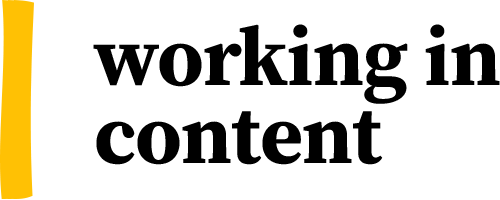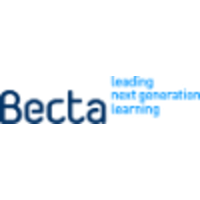On this page:
- Career history, at-a-glance
- Early career and how Pickle Jar Communications began
- Overcoming challenges as a consultancy
- Building a team and defining Pickle Jar Communications’ offerings
- Dealing with depression, anxiety and impostor syndrome
- Advice, recommendations and tips from Tracy
- Tracy Playle: Further reading, watching and listening
Tracy Playle is a Content Strategy Consultant, an award-winning speaker, and a qualified leadership coach. She is also the Founder and CEO of Pickle Jar Communications, Utterly Content, and ContentEd.
We interviewed Tracy about the world of content strategy, her career path to date, and how she deals with ‘impostor syndrome’.
You’ll find plenty of straight talking from Tracy in this article, as well as a large helping of her advice and tips on everything from career progression to picking the right coach to work with!

Career history, at-a-glance
![Tracy Playle Coaching and Public Speaking logo]() Tracy Playle Coaching and Public SpeakingLeadership Coach and public speakerApril 2019 - Present
Tracy Playle Coaching and Public SpeakingLeadership Coach and public speakerApril 2019 - PresentPickle Jar Communications Ltd.CEO and Chief Content StrategistSeptember 2007 - Present
![Utterly Content logo]() Utterly ContentFounder and DirectorMarch 2015 – Present
Utterly ContentFounder and DirectorMarch 2015 – Present![Chartered Institute of Public Relations, Education and Skills Sector Group logo]() Chartered Institute of Public Relations, Education and Skills Sector GroupChair (voluntary position)January 2010 - January 2011
Chartered Institute of Public Relations, Education and Skills Sector GroupChair (voluntary position)January 2010 - January 2011![Becta logo]() BectaInterim FE & Skills Stakeholder Engagement Manager2008 - 2009 (1 year)
BectaInterim FE & Skills Stakeholder Engagement Manager2008 - 2009 (1 year)![University of Warwick logo]() University of WarwickHead of Research TVFebruary 2005 – August 2007 (2 years, 7 months)
University of WarwickHead of Research TVFebruary 2005 – August 2007 (2 years, 7 months)![Warwick HRI, University of Warwick logo]() Warwick HRI, University of WarwickCommunications ManagerMarch 2004 – March 2005 (1 year, 1 month)
Warwick HRI, University of WarwickCommunications ManagerMarch 2004 – March 2005 (1 year, 1 month)![University of Warwick logo]() University of WarwickAssistant Communications OfficerAugust 2002 – March 2004 (1 year, 8 months)
University of WarwickAssistant Communications OfficerAugust 2002 – March 2004 (1 year, 8 months)
Early career and how Pickle Jar Communications began
Tracy spent just over five years working in-house at the University of Warwick; beginning her time there as an Assistant Communications Officer in the Communications Team.
“It quickly morphed into being more like a digital PR team, so I did a lot of everything: web editing and publishing, copywriting, event management, media relations. I had a very broad role.
“In 2005, I became the Head of Research TV - a broadcast PR service owned by the University of Warwick, working with a number of different universities in the UK.”
As part of their work, Research TV would produce video news releases of research stories, which would be distributed for use by TV channels worldwide.
“It was phenomenally successful from a content perspective. We had great stories to tell. But financially it was a struggle and public funding to support it became scarce. Back in the early 2000s, the cost of trying to get a piece of high-quality video content to a broadcaster was very high, and it made the service expensive to maintain.”
At the same time, Tracy was working alongside other initiatives at the University that involved experiments with social and digital storytelling: iTunesU, podcasting, YouTube, and social media engagement. Research-TV was part of a bigger team that really believed in trying new things with content.
“Our team became known as being quite innovative in digital engagement. We were often contacted by other universities asking to come and spend time with us so they could learn how we were doing things.
“We realised that we were - in a way - offering free consultancy for other universities. So, a colleague and I started talking about maybe starting a consultancy to cater for the demand.
“In 2007 Research-TV came to a close, and I was made redundant. At the time I wasn't really brave enough to set up my own company, and I was offered a sideways move into another role at the University. It was tempting, but I wanted to keep growing and - yes - earn more.”
Tracy spoke to her boss and asked whether she could do part of that new role, but on a consultancy basis instead. They said yes, and that was the start of Pickle Jar Communications. Tracy’s consultancy business was born.
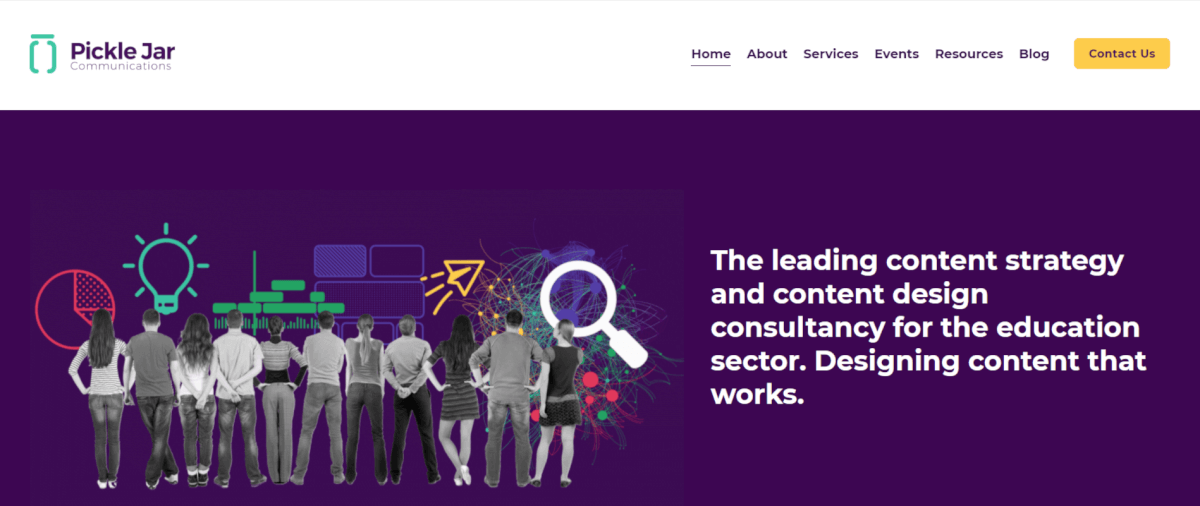
“I started Pickle Jar Communications off by doing executive production work on videos, alongside social media training and consultancy. After a few years of that, I couldn’t get over the frustration that the user journey across different channels would often feel disjointed. I could affect the social media channels, but nothing else. A user might come from a great social media channel and then have a really shit experience on the website.
“I wanted to get my hands on the wider content experience, and so my work started to move more into broader content strategy. I guess it was around that time that I also learned the term “content strategy”.
Overcoming challenges as a consultancy
Tracy says that the main challenge for her was preventing the ‘feast or famine’ state that can happen when you’re a consultancy.
“You get a project, you get really busy on that project, and then you forget about nourishing your pipeline for the next contracts. That happened to me twice in the early days of the business.
“The first time, it wasn’t too terrible. It didn't take me long to win a new piece of work. But, the second time, I was renting a place by myself, I'd recently left a relationship, and I was sat in my house looking at the last £2 in my bank account not knowing where the next gig would come from.
“I thought I was going to need to move back in with my parents, and that motivated me to turn it around.”
The new work came, and from that point on, she’s always had an eye on the future and where the next projects are coming from.
“Occasionally, it’s been tight. That can be scary. I’ve never not been able to pay my team’s salaries in full, but I’ve come too close for comfort once or twice. It really sucks.”
Like all founders and owners, Tracy has had to make difficult decisions in order to ensure the long-term survival of her business.
“For me, as you’ve probably already guessed, those difficult decisions often come when it's about the ‘people’ side of things, like having to restructure or say farewell to folks.
“One exit in the early days was contentious and heartbreaking. I had a lot of love for that colleague, and they had so much potential. What's apparent to me now is that they probably also had a very large dose of impostor syndrome, and I had no idea how to spot or manage that at the time.”
What is impostor syndrome?
Impostor syndrome is loosely defined as doubting your abilities and feeling like a fraud. It disproportionately affects high-achieving people, who find it difficult to accept their accomplishments. Many question whether they're deserving of accolades.
source: Harvard Business Review“I think my experience with my own impostor syndrome and leading a team of people who also experience it has taught me ways to spot it, especially when the fear means that people can’t even talk about it. I’ve seen it threaten client contracts, and threaten internal relationships too. I’ve seen people close down and act out because of it. It’s not always easy to spot and to manage with compassion. I certainly haven’t always got it right. But I’m committed to keep chipping away at it and supporting people through it.”
Tracy considers herself to be on a constant journey when it comes to leadership and management, and something she will always be striving to work on.
“I have a coach, a mentor and a therapist. One of the reasons I trained to be a coach was to really help me ‘level up’ my leadership skills. I’ll admit that there was a lot that I didn't know - especially about myself - and so much still to be learned.
“Now I make it clear to my team that there’s always help available to them, but they have to ask for it. Failing and struggling is totally fine - I expect and welcome it. But doing so in silence or hiding is not. You can’t help what you can’t see. My job as a leader is to create the environment in which people can ask for help.
“It’s about developing a culture where there’s no such thing as a stupid or ‘weak’ question, which is funny as this is part of how my own impostor syndrome looks; I don't want to ask ‘the stupid question’, because I don't want people to think that I'm stupid. So I’ve had to really overcome my own stops to be the clearing for others in my team to do the same.”
Tracy is a true professional. She has formed a talented team at Pickle Jar and I have benefited from her insights and visionary input. Her research and reports have been most useful to me, and under her guidance I have implemented successful changes in my digital and social media strategy.
source: LinkedInBuilding a team and defining Pickle Jar Communications’ offerings
During the early years of the consultancy, Tracy tended to be more risk-averse than she is now.
“I grew up in a family business and my role models there never took any risks. So the idea of getting an investor or borrowing money for the business was just not something I wanted to do. As a result, I didn't even employ anyone else until I’d won a contract that was big enough to justify it.
“These days, my attitude to risk is slightly different, although it's still not that different! The growth of the company has been very organic and steady. I was probably about four years into the business before I started giving some people a little bit of freelance work here and there.
“Eventually, I took on some part-time support through a couple of people, one of which I shared with another company. I then went on to win a contract to develop Newcastle University’s social media strategy. Working with them for a couple of years meant that I was able to grow the team quite a lot in that time. I’d finally made the leap and taken on my first full-time person.”
Tracy says she’d love to pretend that she had an amazing strategy for the consultancy’s growth or a set trajectory she was working towards, but that the truth was that the company’s growth was as a result of her “accidentally tripping over” opportunities as they came along.
“Some of it, I can't even remember, not clearly. I know what we started doing next was hiring lots of interns. It tied in with our work with universities, as they run various internship schemes.”
“I remember that we actually then employed two of the interns on a part-time contract, beyond the university social media work.”
It’s not unusual for people at Pickle Jar Communications to stick around for a good while. Of the nine people Tracy currently employs, three of them have been there for seven years or more, and they’re all board members now too.
With growth has come many different attempts at defining the “right” company structure.
“We're restructuring at the moment, which will change things slightly, but at this moment in time we have three small teams; a research team, a strategy team and a content creation team. I started with one person in each of those areas, then across the whole company we’ve gradually grown those teams and now we're a 10 person company (including one associate).”
Roles and specialisms at Pickle Jar are clearly defined now, but in the early days, it took a while for Tracy to really nail down and realise the consultancy’s main offering; content strategy. And that too is now evolving into a focus more broadly on experience design.
"I had that moment where I finally realised that what I was doing was content strategy; perhaps for many of us it’s when we read Content Strategy for the Web book. We go, ‘oh! That's what I am!’
“I’ve heard many people in our profession share that they had a similar revelation.
“So having realised what I had been doing all this time, I also realised that it had a much wider application than just social media stuff.
“Then on top of this, there’s getting the confidence to just go and do it. Do content strategy.”
Tracy says that she’s always been a ‘make-it-up-as-I-go-along’ type of person. She already liked to invent new models and find new ways of doing things, so she just didn’t feel like she necessarily needed to be formally trained on ‘how to be a content strategist’.
“I know this all sounds less strategic than it actually is. For me the fun and enjoyment comes from using my own creativity to figure it all out. So, I will certainly take inspiration from others in the profession and borrow concepts and approaches, but almost always I’m busy inventing my own models or reinventing theirs to suit my needs and those of my sector.”
Tracy is still very active on the delivery side of the business. At any moment in time, she can be found working on at least one or two projects, often supported by members of her team.
“I tend to lead the stuff that draws on my own personal skills more, and the stuff that I really love doing. So for example, I’m a qualified coach. So when we're doing coaching work, it's me doing that.
“And I know not everyone likes the phrase, but I’ll usually pick up the ‘thought leadership’ stuff too. I'll be the one that's developing a new model or getting excited about a new project design. But I won’t often do the nuts and bolts work on projects. I might set the strategic direction for a particular project, and make sure that it's going in that direction, but I aim to keep my hands off the detail.
“My team would probably say that I can be a little bit of a ‘tinkerer’. They’ve learned not to show me their work before sending it out to clients, because if I see something - even if it’s really excellent - I will still want to add something or do something to it!”
Tracy says that even though it’s in her nature to be like this, she doesn’t want her team to believe she’s got the “answer” for everything. She hasn’t.
“I always want people to come in and be brilliant, and come up with solutions themselves. This may sound awful, but there have definitely been times when I’ve refused to share my old files with them because I'm so confident that they can come up with a brilliant solution by themselves. Without any help from me.
“If all they're doing is copying me, then I don't get to learn. I want to learn from them as well. So sometimes they hate when I do that, because I'm really blunt about it too, but I just want to push them a bit so they’ll come up with what could be a new way of thinking or a new approach.”
Dealing with depression, anxiety and impostor syndrome
Tracy was really candid with us when asked about how she’s managed her mental health over the years - and all in parallel to managing the pressures of starting and running her own business.
“I like to be completely open about my mental health. I have an ongoing relationship with depression and anxiety that only really became properly diagnosed in the last few years. It's quite normal now for me to spend at least half the year on antidepressants.
“I refer to myself as being the happiest depressed person that you'll probably ever meet. I’m very outspoken about wellbeing and mental health.”
In the early days of running the company, she wasn’t quite so aware of her mental health. Growing up in the 1980s, she thinks it’s a consequence of not being exposed to open conversations about subjects like depression and anxiety.
“It certainly wasn't something that was ever tackled at school. So there's always been some anxiety there, and it does show up as impostor syndrome, but I think I actually managed to almost hide it because of the nature of what I was doing in those early days.
“I was 27 when I started my consultancy. I remember thinking about how old I was, and that almost prevented me from starting it. I would be saying to myself, ‘you don't have enough years experience in the workplace. You're not experienced enough! People are going to laugh at you!’ and so on.”
But Tracy already had that experience of being a consultant in social media, and she believes that the fact she was still relatively ‘young’ made her push on with her plans.
“My age worked in my favour, because social media was still emerging into the mainstream, and therefore it was the kind of work that was perhaps more associated with ‘young people’ at that time.”
“So many people hate on their impostor syndrome, but I just don't think it achieves anything, because, for a lot of us, it's not going to go away. I think there are some very toxic manifestations of impostor syndrome too.
“One of the ways it shows up is that people hide; they don’t have the confidence and so they stay very quiet. They stay very small, and they hold themselves back. They don't put themselves out there for things. That's just one manifestation.
“I tackle impostor syndrome in three ways: love, gratitude and laughter.
“I decided to intentionally fall in love with my impostor syndrome. It’s a manifestation of my inner child and, like most children when they’re playing up, it has needs that it doesn’t know how to articulate. Usually mine just needs a cuddle to calm it down. Gratitude helps too: recognise that it shows how committed you are to wanting to be great. And then also recognise how fundamentally ridiculous ‘feeling like an impostor’ actually is, and laugh at it. That’s how I deal with it.”
Tracy says that she knows some brilliant people in the industry that are very open about their experiences of impostor syndrome, but equally, she knows of others who wouldn’t want to share any experiences of it publicly, as they wouldn’t want industry colleagues to know that was the case.
"I personally think we do need to be having more of an open conversation about impostor syndrome, because it really does hold people back in their careers.
“I'm just lucky that my experience was such that I was able to spin that feeling in a different way for myself and make it into something positive. Not everyone relates to it that way though.”
I've worked with Tracy in a number of ways over the last few years, both as a speaker I have suggested for various conferences (at which she has always gained great reviews) and on a consultancy basis on the social media side for the University of Nottingham. Tracy delivered a really helpful social media workshop for a newly merged marcomms function, bringing together a range of very different colleagues from different teams effectively and creatively with a cross-cutting social media theme. That session kick-started the idea for our award-winning Election 2010 blog and helped us to begin the process of building a new team - one that went on to win the THE Leadership and Management Award Communications and Marketing Team of the year, little over a year later.
source: LinkedInAdvice, recommendations and tips from Tracy
What skills do you think can make a content strategist stand out during an interview process?
“Because I'm trained as an ontological coach, I'm very, very accustomed to looking at how people are being, not just what they're saying in an interview. So I'm often reading how people are being and some of it will come across in what they say too.
“So the things that I would look for is someone who is very compassionate, empathetic - and I know that word’s been a little bit overused and abused of late - but yes, truly empathetic. And also someone who is really curious.
"For me, curiosity is the number one superpower for anyone that works in the fields of content or UX.
“In a way, it’s also about being willing to ask the difficult questions, and maybe say something that might shock people, just to get that unique insight. A person that just doesn't just ‘accept’ what's in front of them the whole time, but is willing to challenge the status quo.”
Some people can struggle to market themselves, so what suggestions do you have for those who want to become more visible in the content community?
“I actually think that you can raise your profile by asking brilliant questions. You don't have to know the answers to them.”
“Doing that through blogging is always great. I'm actually not really sold on a lot of podcasting stuff, I think personally, it’s just not really for me. I'll contribute to them, but I'm not a big consumer of podcasts.
“I'm still really into Twitter and there are some fairly obvious communities of content strategy people to be found there, but across social there are also lots of micro-communities that exist too, like Facebook groups for content strategists and UX people or Slack groups.
“And the other thing is to try and speak at conferences. Again, I don't think that you've got to go to a conference with all the answers before you can speak at it. We go to conferences because we want to hear new things. We want to hear the powerful questions, not just the right answers.
“I know, for example, that when I'm submitting speaker proposals, I will quite often propose speaking about something that I don't have my thoughts fully developed on yet!”
What advice would you give someone who’s considering a career change into content strategy from say, a more traditional role in marketing, journalism, etc.?
“Don't feel that you've got to have all of the skills before you make the leap. I mean, this was more true a few years ago than it probably is now, but a few years ago when I was hiring content strategists, ‘content strategists’ didn't really exist out there to hire. You couldn't hire someone who was already a content strategist or a content designer - at least not in the education sector.
“I think a lot of people believe that they can only make a move into these kinds of professions if they've been on the course, and they've read all the books, and they've been to all the conferences... I just don't buy into that. It's just not true.
“Instead, I'd ask them to consider what gives them the potential to be a powerful content strategist. Start from there, rather than stressing and getting very anxious about a portfolio or your skills. There are going to be other employers out there that say something completely different to me on this, I know, but if I'm employing people, that’s how I’d look at it all.”
Which industry professionals should people be following right now on Twitter?
 Jeff Eaton Social justice advocate, content strategy ne'er-do-well, co-founder @autogram_is, co-host @crightcast. Anti-fascist, partner to @sparrowpost, He/HimFollow @eaton
Jeff Eaton Social justice advocate, content strategy ne'er-do-well, co-founder @autogram_is, co-host @crightcast. Anti-fascist, partner to @sparrowpost, He/HimFollow @eaton David Dylan Thomas Big fan of treating people like people. Author, Design for Cognitive Bias. Speaker, Lots of Places.Follow @movie_pundit
David Dylan Thomas Big fan of treating people like people. Author, Design for Cognitive Bias. Speaker, Lots of Places.Follow @movie_pundit Sarah Winters Consultancy and courses by Sarah Winters, creator of the #ContentDesign discipline for GDS. Tweets by Sarah signed S.Follow @ContentDesignLN
Sarah Winters Consultancy and courses by Sarah Winters, creator of the #ContentDesign discipline for GDS. Tweets by Sarah signed S.Follow @ContentDesignLNIs there a particular book you’d recommend to someone who is early in their career?
“I think we sometimes get so focused on tactical skills that we forget about the work we need to do on ourselves “So, I’m gonna recommend a few with that slant, instead of skills-based books for content strategy or UX…
 Existential Kink: Unmask Your Shadow and Embrace Your Power
Existential Kink: Unmask Your Shadow and Embrace Your PowerExistential Kink provides practical advice and meditations so we truly see our shadow side’s “guilty pleasures,” love and accept them, and integrate them into our whole being. By doing so, Elliott shows, we bring to life the raw, hot, glorious power we all have to get what we really want in our lives.
 Dark Side of the Light Chasers : Reclaiming Your Power, Creativity, Brilliance and Dreams
Dark Side of the Light Chasers : Reclaiming Your Power, Creativity, Brilliance and DreamsAn exploration of how people hide, deny, and reject our dark sides shows, through stories and exercises, how to reconcile these impulses, stop letting the same things affect us so intensely, and move closer to wholeness.
 Feel the Fear and Do It Anyway
Feel the Fear and Do It AnywayInternationally renowned author, Susan Jeffers, has helped millions of people around the globe to overcome their fears and heal the pain in their lives. Such fears may include: Public speaking; Asserting yourself; Making decisions; Intimacy; Changing jobs; Being alone; Ageing; Driving; Losing a loved one; Ending a relationship. But whatever your anxieties, Feel The Fear And Do It Anyway will give you the insight and tools to vastly improve your ability to handle any given situation. You will learn to live your life the way you want - so you can move from a place of pain, paralysis and depression to one of power, energy and enthusiasm. This inspiring modern classic has helped thousands turn their anger into love - and their indecision into action - with Susan Jeffers' simple but profound advice to 'feel the fear and do it anyway'.
 Worthy: Boost Your Self-Worth to Grow Your Net Worth
Worthy: Boost Your Self-Worth to Grow Your Net WorthWhen we feel that we aren’t enough, or that we aren’t good enough, we also fear that we’ll never have enough. Money. We love it. We hate it. If we don’t have enough, we’re struggling to get more. If we do have it, we’re fighting to hold on to it. Why does money have to be such a source of anxiety? Is it possible to find a balance? Yes! According to integrative life coach Nancy Levin, the real key to creating financial freedom isn’t changing what we do, it’s changing how we feel—and that requires more than just learning how to invest. In Worthy, Nancy makes an essential, eye-opening connection: the state of our net worth is a direct reflection of our self-worth. Then she shows us how to get to the root of the problem and do the internal work that’s needed to replace feelings of unworthiness with a stronger sense of our own value.
This one might sound like it’s just about financial worth, but it’s so much more than that!
— Tracy Playle The Soul of Money: Reclaiming the Wealth of Our Inner Resources
The Soul of Money: Reclaiming the Wealth of Our Inner ResourcesThis compelling and fundamentally liberating book shows us that examining our attitudes toward money―earning it, spending it, and giving it away―can offer surprising insight into our lives, our values, and the essence of prosperity. Through personal stories and practical advice, global activist Lynne Twist demonstrates how we can replace feelings of scarcity, guilt, and burden with experiences of sufficiency, freedom, and purpose. Twist takes an honest and critical look at the extraordinary power that money wields over our lives and its profound and often destructive influence on our self-image and relationships.
“These are all powerful books for helping you overcome ‘confidence blocks’ in your work and to really help you get centred around a sense of higher purpose that you’re actually working to - in your life, and through your work.
“Yeah of course we all need to know how to write better copy, or develop a content model, or design a taxonomy… but if we aren’t clear or confident in our power and the big “what for” of doing any of it, what’s the point?”
Can you tell us a bit more about ContentEd?
“ContentEd is a really special community. The thing that I'm really proud of is its ability to help people in the education sector.
“We do a lot of sharing in the content community, but there are organisations that just don't quite scratch the edge of that, yet they also have PR, content, comms and marketing people. There wasn't really anything out there that was serving those people.
“That's what we've really created with ContentEd. It's constant hard work to keep it going though!
“The vision for the event is to have a ‘hybrid’ event. We want to do it in person live in Bristol, but we also know that there’s a benefit of doing it online too, so we can open it up to more people around the world.
“So we're now questioning, ‘how do we keep this global focus and still have the local feel that everyone wants from the event?’
So the vision now for the February event is for it to be more of a week-long festival of learning, so that people can dip in for an hour or two on the days they can make it.
“They might attend a workshop, they might attend a talk, they might go into some coaching sessions, but we want to have it a bit more spread out across a week, rather than it feeling like it's a big block of time that they have to take out of one day.”
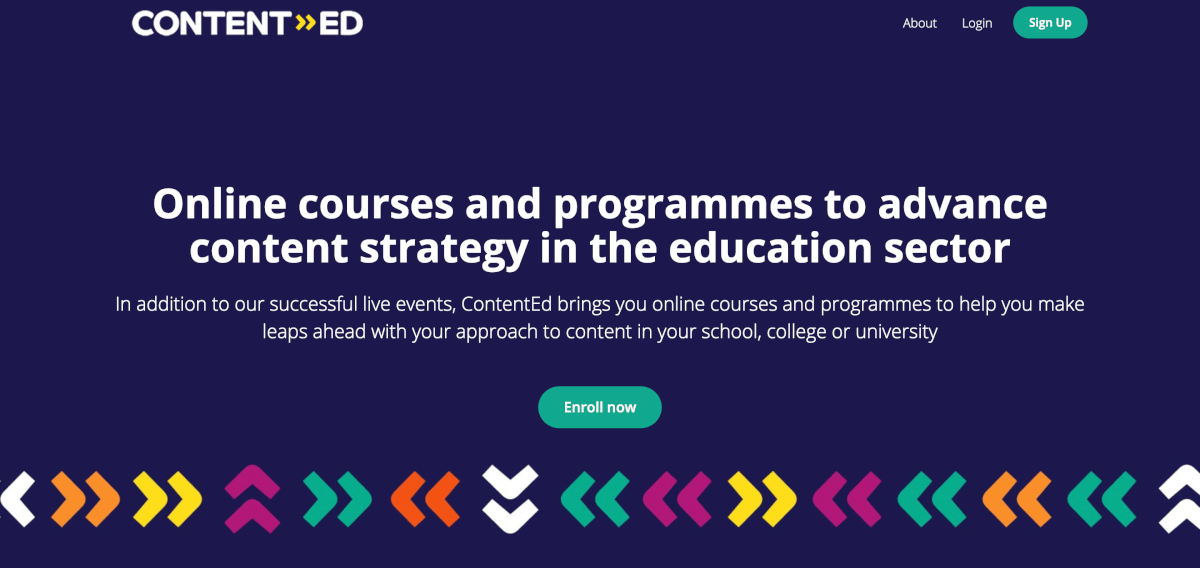
Do you have any practical advice for others who wish to develop speaking skills and build their confidence up more in that area?
“I love public speaking. Some people think that you need to be super expert at something to be a public speaker. That’s rubbish though.
“One of the things that I find really helps with confidence is to recognise that a great public speaker isn’t necessarily the person with the best answers - but the best questions. Questions that provoke new thinking.
“When I’m speaking at something, I’ll also aim to bring a lot of playfulness to my speaking. I consider the process of planning and giving a talk to be a bit of a ‘sandpit’ for testing out new ideas, and putting them out to the community.
“Many new frameworks that I use in my work were actually born in a slide deck - not the other way around. So, again, I don’t get the anxiety of having to be “right”. Instead, I just have to be playful and as authentic as possible, and keep open the space for the expertise of the audience.
“Being comfortable with saying ‘hey, I don’t know… but I’d love to hear what you or the rest of the audience thinks’ when you get stuck on a question is a bit of a superpower too!
“Just remember that the audience never wants you to fail. They are all 100% rooting for you. And if they’re not, that’s their shit and they’re probably just having a bad day.”
What made you consider becoming a life coach? And, out of interest, do you find that the skills needed also support the work you do at Pickle Jar?
“I hired my own coach a few years ago (before training to actually be one), and it totally transformed my life and my leadership.
“I started to see so much in the skills of being a coach that I could bring to my content strategy work, so I enrolled in a year-long programme, and it was about the most rigorous coach training programme you could take at the time.
“I was constantly flying back and forth between the UK and New York City for my training; all with zero intentions of actually becoming a coach at that time. But, once I caught the bug of working with people that way, I had to keep doing it, so now I blend all of my different roles with it.”
For people who haven't ever considered working with a life coach, how would you describe the benefits to them?
“Coaching is essentially a creative partnership in which you get clarity around how you want your life - or aspects of it such as your career - to go.
“You define that vision (often with the coach’s help), and then the coach’s job is to keep standing for the vision that you’ve declared, and supporting you to get out of your own way.
“I’m an ontological coach, which is a very specific form of coaching that is super transformational. It can also be very confronting and triggering work for some people. And we really ‘go there’ by looking deep at the belief structures and automatic behaviours that we all individually. These structures and behaviours can be things that stop us from ‘having it all’. They’re designed to hold us safe - but very still or stuck - in our comfort zone, so I’ll work with someone so they can find a way to step outside of them.
"One of the things I’d noticed in content/UX professions was that there is so much heart and purpose in our community; but combined with so much ‘impostor syndrome’.
“I could really see a way that I could support people through that too, as a coach - in service of themselves - but also in service of the profession.
“I now work with a lot of content folk who want to create a real impact on the world with their work, whilst still loving life. One of the many things that I support them to overcome or be with is the way in which they stop themselves - because they’re afraid.”
With thousands of 'life coaches' out there, what should people look out for when they’re trying to select one to work with?
“I’ve written a whole blog post about this that folk might find helpful. But basically:
Ask them about their credentials and training.
Check their understanding of coaching. A good coach isn’t actually a cheerleader or a mentor - and certainly not an advisor.
They shouldn’t tell you what to do. A coach who tells you what to do is kinda toxic - they simply reinforce your own limiting belief that you can’t make such decisions for yourself, so it’s super disempowering, even though it’s disguised as helpful.
Look for coaches who are committed to professional development, who have their own coach with whom they really do the work on themselves, and who work in line with the code of conduct and core competencies of an organisation like the International Coaching Federation (ICF).
“A good coach will also stand for you hiring the right coach for you, and recognise that that won’t always be them! For example, I’m constantly offering referrals and recommendations for other coaches for people to check out.”
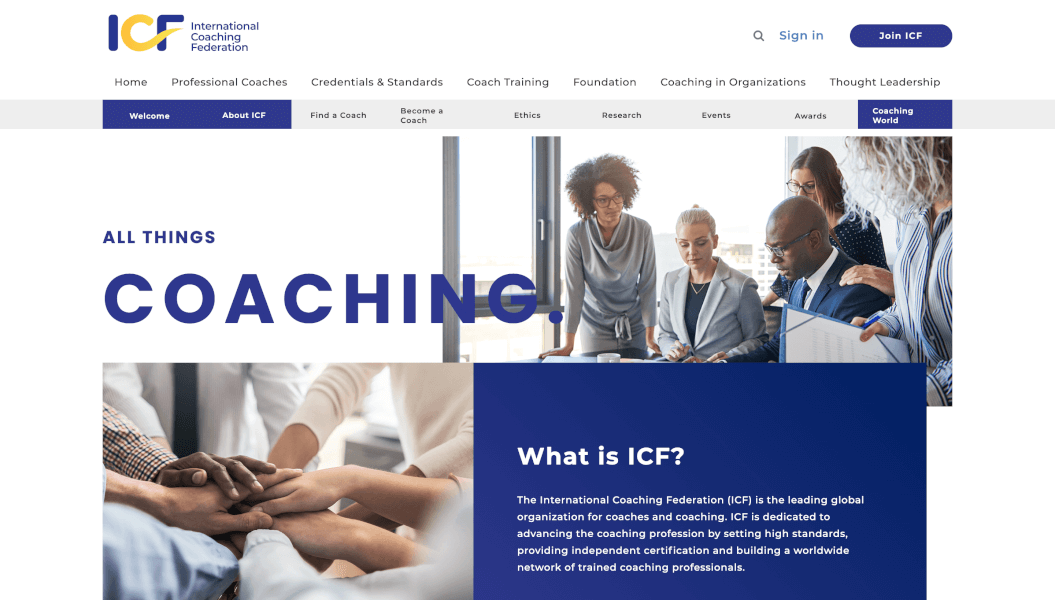
Tracy helped work through some campaign literature we needed at WBS. She was excellent. I knew she would be - she took time to listen, time to challenge, time to create and the results were stunning. She got what we needed and she delivered. Just brilliant.
source: LinkedInTracy Playle: Further reading, watching and listening
-
Tracy’s LinkedIn profile Connect to Tracy on LinkedIn.
-
Tracy’s Twitter profile Keep up to date with what Tracy’s up to with Pickle Jar. Communications and Utterly Content, as well as what’s catching her eye lately…
-
Tracy’s coaching website Featuring Tracy’s coaching blog and details on her coaching services and credentials.
-
The Connected Campus: Creating a content strategy to drive engagement with your university Tracy’s book on the role that content strategy has to play in making higher education institutions less siloed, and creating deeper and more meaningful engagement with our audiences.
-
The Pickle Jar Communications website Discover more about the consultancy that Tracy founded in 2007.
-
The Utterly Content website Find out more about Tracy’s global online festival for all things content.
-
Describing content strategy and design to stakeholders who just don’t get it An Utterly Content blog with practical tips on gaining that important buy-in from colleagues.
-
Creating a content eco-system map Read Tracy’s piece which explains what a ‘content ecosystem map’ is - and how to get started with one.
-
Content Strategy Workshops (episode #49) Tracy shares the skills that help her run effective content strategy workshops.
-
Inspiration on TAP (#episode 6) in this podcast episode (by The Ambassador Platform), Tracy talks about what content strategy is, and why it’s important.
-
Are you having a laugh? The serious business of comedy in content strategy In this deck (originally designed as a workshop for Confab Intensive), Tracy shares advice, guidance and framework for using comedy in content strategy.
-
Developing an empathy-led approach to your digital engagement strategy Tracy shares the tactics for thinking about digital engagement in a way that demonstrates true empathy for our audiences.
-
Three things we must stop putting before content Tracy shares three things that she really wishes all organisations and agencies would stop putting ahead of content strategy and planning.
-
What to look for when choosing a coach Tracy shares a few things to consider when you’re trying to pick the right coaching professional for you.
